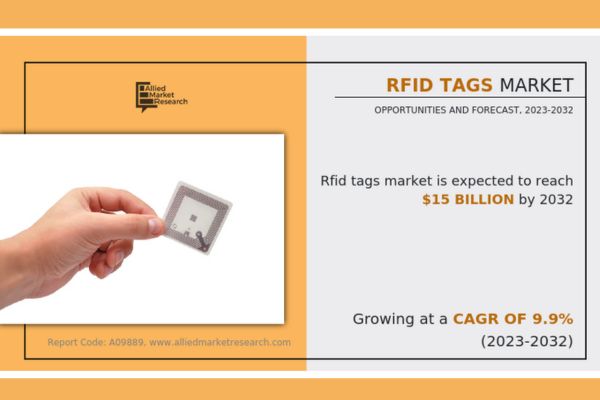In recent years, RFID tags have rapidly become a part of individuals’ daily lives. They have emerged as powerful tools for various industries offering a wide range of applications including inventory management, supply chain management, asset tracking and management, authentication purposes, and many more. These are small electronic devices that use radio frequencies to transmit data. They are implanted in clothing or other products to track objects throughout a supply chain. These devices are widely used in tracking inventory in warehouses and monitoring the movements of livestock. In this blog, we are going to discuss the latest developments in RFID technology, benefiting industries with automated data capture and instant scanning.
What advances in RFID technology can favor various industrial settings?
These days, manufacturers of RFID tags have emphasized the development of smaller and more durable tags for the tracking of small items. These miniaturized tags can be embedded within the products easily, promoting smooth monitoring of various objects. On the other hand, innovations in antenna design and signal processing have enabled these tags with extended read ranges. This promotes the efficient tracking of assets across larger areas and in extreme environmental conditions.
Battery-assisted tags have gained huge popularity in transmitting signals over longer distances and provide additional functionality such as temperature sensing or data logging. These RFID devices are widely used for frequent read or write operations. Conventional tags use power from the readers’ signal to turn on and run the chip. However, battery-assisted tags use their on-board battery to power up and run the chip and the memory and transmit and receive data.
Furthermore, the integration of the Internet of Things has transformed the visibility and connectivity across supply chains and operational workflows. Many organizations have widely adopted IoT platforms to gain real-time insights into the asset movements, optimize resource allocation, and monitor various environmental conditions.
Why are retailers utilizing RFID tags for inventory management?
In this fast-paced world, many retailers have started embracing innovative approaches to improve customer satisfaction, maximize productivity, and enhance efficiency and profitability. Traditional inventory methods were incapable of delivering real-time, precise data on stock levels and locations. This led to additional costs, errors, and delays. However, with RFID tags emerged as game changers in the retail industry. It empowers retailers with real-time, accurate and actionable data that helps them to streamline operations, optimize their supply chains, and enhance customer experiences.
Recent advancements in RFID technology have helped retailers of all sizes to adopt this technology to affordably. This technology has provided retailers with real-time visibility into inventory levels, enabling them to conduct inventory counts more accurately and quickly. This has further helped them to make informed decisions, multi-channel distribution, optimize stock levels, and ensure product availability to meet customer demands.
Amazon’s initiative in promoting the use of RFID technology
Recently, in September 2023, Amazon, an American multinational technology company, opened its first “Just Walk Out Technology” using RFID that helped customers to experience check-out free stores. Through this technology, customers can easily grab the products they want and check out from the store without waiting in the queue. Many entertainment venues, universities, grocery, stadiums, and convenience stores across the US, UK, and Australia. This new technology of Amazon uses cameras, shelf sensors, AI technologies such as computer vision and generative AI that enables retailers to sell a wide variety of products such as food, beverages, groceries, and other home goods. Amazon had employed this check-out free technology to provide an expanded selection of clothing, apparel, and other Softlines merchandise to deliver a frictionless shopping experience to customers.
To wrap up, the increase in the development of more secure, durable, and adaptable tags for a wide range of applications is predicted to foster the growth of the global RFID tags industry in the coming era. Moreover, the rapid adoption of digitization and automation across businesses is anticipated to create wide opportunities for the sector in the years to come.















